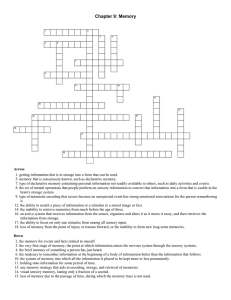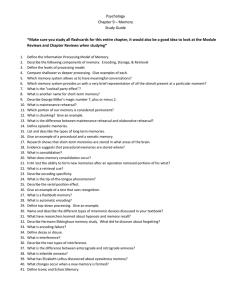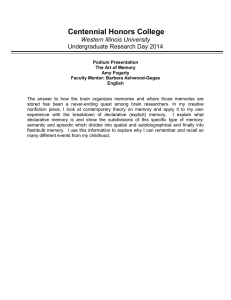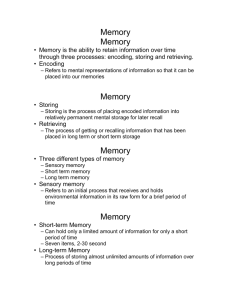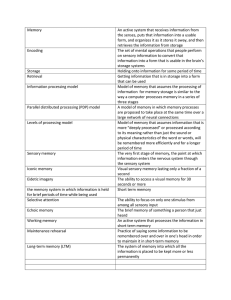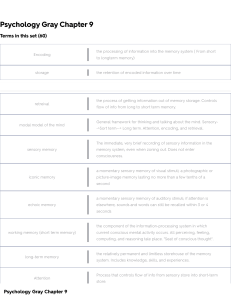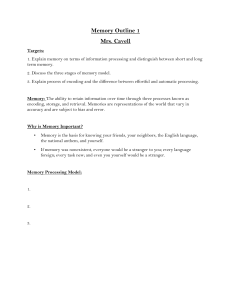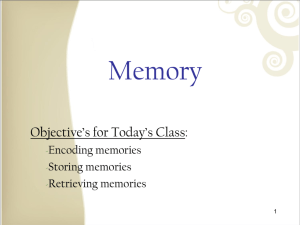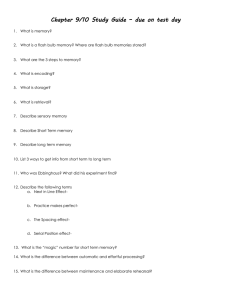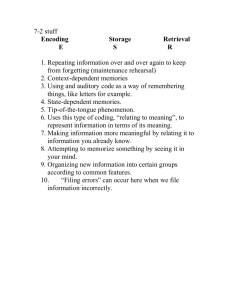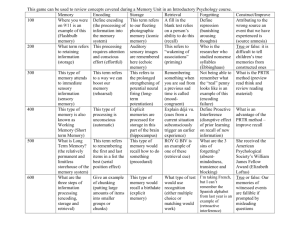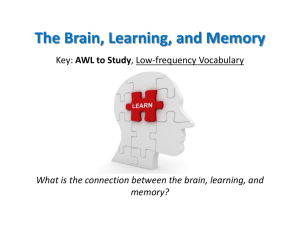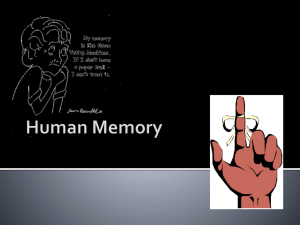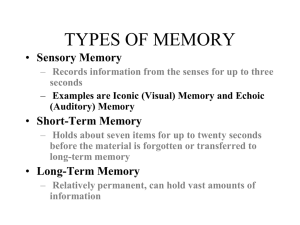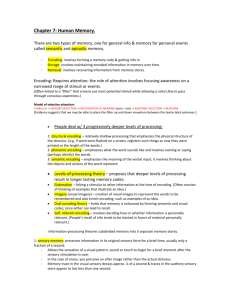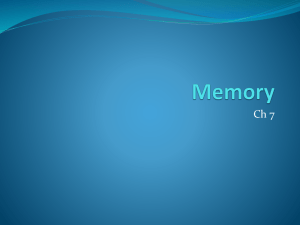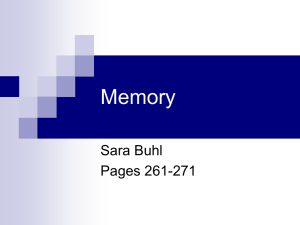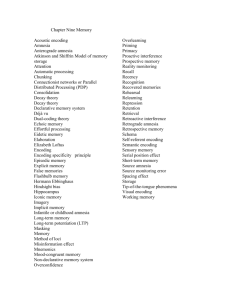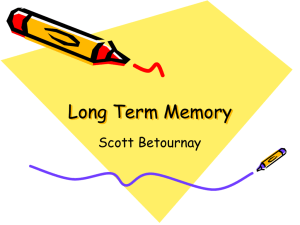Lecture9.doc
advertisement
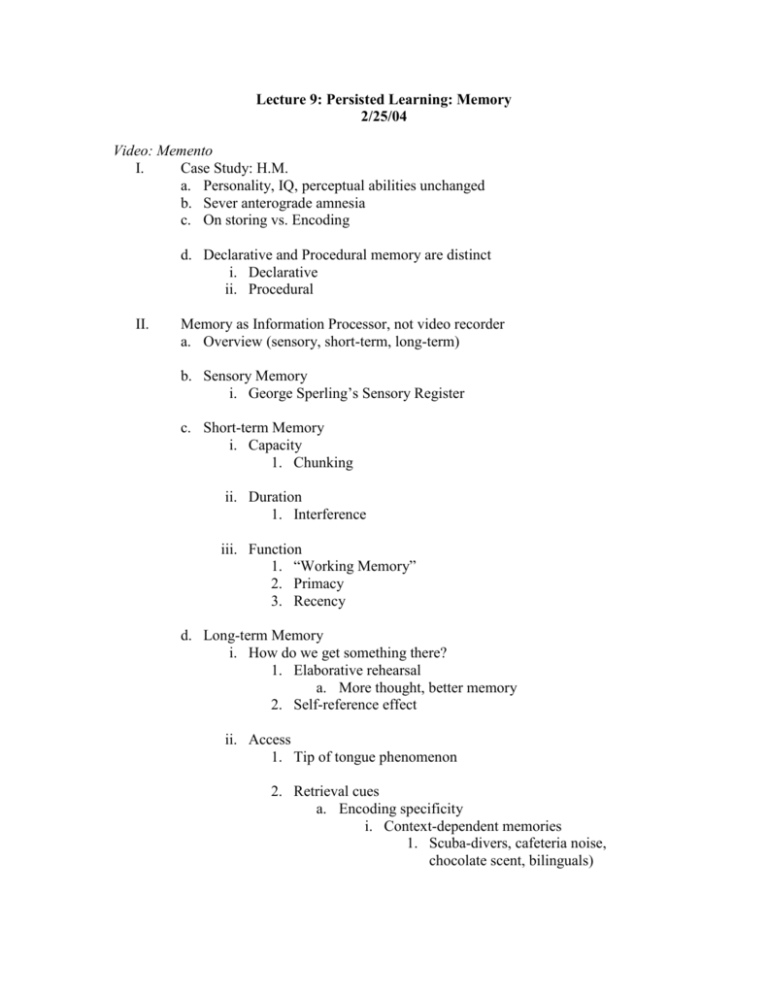
Lecture 9: Persisted Learning: Memory 2/25/04 Video: Memento I. Case Study: H.M. a. Personality, IQ, perceptual abilities unchanged b. Sever anterograde amnesia c. On storing vs. Encoding d. Declarative and Procedural memory are distinct i. Declarative ii. Procedural II. Memory as Information Processor, not video recorder a. Overview (sensory, short-term, long-term) b. Sensory Memory i. George Sperling’s Sensory Register c. Short-term Memory i. Capacity 1. Chunking ii. Duration 1. Interference iii. Function 1. “Working Memory” 2. Primacy 3. Recency d. Long-term Memory i. How do we get something there? 1. Elaborative rehearsal a. More thought, better memory 2. Self-reference effect ii. Access 1. Tip of tongue phenomenon 2. Retrieval cues a. Encoding specificity i. Context-dependent memories 1. Scuba-divers, cafeteria noise, chocolate scent, bilinguals) ii. State-dependent memory 1. Alcohol, marijuana e. Implicit Memory i. Amnesic studies 1. “cancer,” “you won’t feel any pain,” “beached whale!” ii. In everyday life 1. Deja-vu 2. False-fame effect 3. Eyewitness transference 4. Unintentional plagiarism f. Autobiographical Memory i. Flashbulb memories ii. Childhood amnesia iii. Hindsight bias
